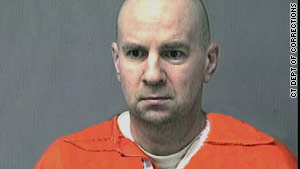Scammer
Banned

Steven Hayes may receive the death penalty for his role in the slayings of two sisters and their mother.
New Haven, Connecticut -- After a weekend of deliberation, jurors in Connecticut on Monday are set to continue weighing the fate of a man convicted of killing three family members in a brutal 2007 home invasion.
Monday marks the fourth day of deliberations in the sentencing phase for Steven Hayes, who could face the death penalty or life in prison.
Hayes was convicted last month of 16 of the 17 charges against him, including nine counts of murder and capital murder, and four counts of kidnapping.
Jennifer Hawke-Petit, 48, and her daughters, 17-year-old Hayley Petit, and 11-year-old Michaela Petit, died in the attack.
Prosecutors allege that Hayes and Joshua Komisarjevsky invaded the Petit home in Cheshire, Connecticut, beat Dr. William Petit, raped and strangled his wife, sexually molested one of the daughters, set the house afire and tried to flee.
The five male and seven female jurors decided about 4:15 p.m. Sunday to retire for the evening without deciding the sentence for Hayes.
Jurors have deliberated a total of about 16 hours over three days.
On Saturday, the jury sent a note requesting a read-back of some of the testimony of Dr. Eric Goldsmith, a psychiatrist who had said Hayes was impaired at the time of the crimes and experienced extreme rage. Goldsmith was a witness for the defense.
On Friday, the jury asked Judge Jon Blue for clarification of the statute regarding mitigating factors -- evidence presented that would provide a reason for a sentence less than death.
Blue instructed the panel members that they could not go into the second phase -- determining whether the prosecution has proven the aggravating factors -- until they were unanimous about whether there were mitigating factors.
Hayes' lawyer has told jurors his client would suffer more if given a life sentence.
"Life in prison without the possibility of release is the harshest penalty," Tom Ullmann said. "It is a fate worse than death."
Ullmann asked his 47-year-old client to stand in front of the jury. He put his hand on Hayes' shoulder and said to the jurors, "He isn't a rabid dog that needs to be put to death. He has lost 80 pounds. He will never have a private bath. He goes to the bathroom in public. He will never eat a dinner that he makes, but one that they provide. He has a rec cage for an hour a day. Like an animal at the zoo."
As he stood, Hayes -- who did not testify during the trial -- looked at the floor.
"If you want to end his misery, put him to death. ... If you want him to suffer and carry that burden forever, the guilt, shame and humiliation, sentence him to life without the possibility of release," his lawyer said.
Prosecuting attorney Michael Dearington tried to persuade jurors to order Hayes be executed.
"We cannot tie Steven Hayes to a bed, pour gasoline on him and set him on fire," Dearington said, referring to the killings. "But under our laws, we do have the death penalty."
He added that the Petit family had been "destroyed because Steven Hayes wanted money."
A psychiatrist testified last month that Hayes had told him he would rather be executed.
The high school dropout said he had a long history of substance abuse, the psychiatrist said.
But Dearington said that should not be an excuse for the murders.
"Drugs don't necessarily lead to violent crimes," he said.
The girls died of smoke inhalation. Their father escaped to a neighbor's home.
Komisarjevsky will be tried separately.
